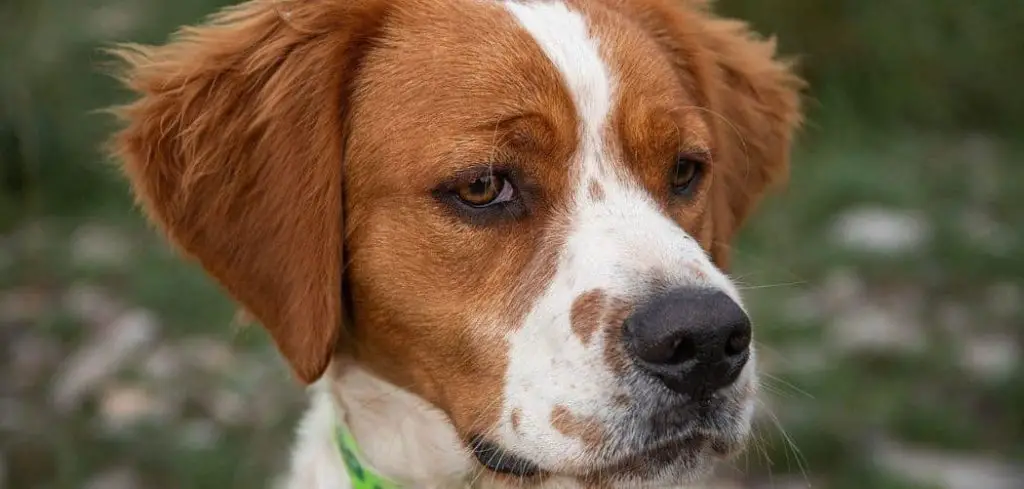Dogs can sometimes develop watery diarrhea even if they appear otherwise normal, leaving owners unsure whether it’s a mild upset or something more serious.
While it may resolve quickly, watery diarrhea can also point to underlying digestive issues or other health concerns.
We outline the common causes of a dog having watery diarrhea with no other symptoms, what you can do at home, and when to seek veterinary help.
Dog Watery Diarrhea No Other Symptoms — Why It Happens
Watery diarrhea in dogs without other symptoms often results from dietary indiscretion, mild infections, parasites, stress, or food intolerance. Sometimes, the digestive tract reacts to something simple like a change in food, while other times inflammation in the intestines leads to loose, watery stools.
Because dogs may act normal even when their digestion is upset, it’s important to monitor both the frequency and the duration of the diarrhea.

Dog Watery Diarrhea No Other Symptoms: Common Causes
Dietary Indiscretion
Dogs are notorious for eating things they shouldn’t—like garbage, table scraps, or spoiled food.
This can irritate the digestive tract and cause watery diarrhea, even if the dog otherwise seems normal and energetic.
Owners may notice the diarrhea starts suddenly after the dog raids the trash or steals food. While mild cases may clear up quickly, repeated episodes increase the risk of dehydration.
Read more: Dog Watery Stool with Blood (What it means)
Sudden Diet Change
Switching dog food brands or types too quickly can disrupt the balance of gut bacteria. This can cause watery diarrhea without any other obvious symptoms.
Puppies and sensitive dogs are especially prone to this issue. Gradually transitioning food over 7–10 days helps prevent these stomach upsets.
Parasites
Intestinal parasites like Giardia, coccidia, or roundworms can cause watery diarrhea in dogs, sometimes without other noticeable symptoms.
Puppies are particularly vulnerable, and even adult dogs can carry parasites that only show up as stool changes.
Left untreated, parasites can worsen and eventually lead to weight loss or lethargy.
Stress or Anxiety
Dogs experiencing stress—whether from travel, boarding, new environments, or loud noises—can develop stress colitis, which leads to watery diarrhea.
Despite this, many stressed dogs still appear otherwise normal, eating and playing as usual.
The diarrhea usually resolves once the stressor is removed, but chronic stress should not be ignored.
Food Intolerances or Sensitivities
Some dogs are sensitive to certain proteins, grains, or additives in food. This can lead to ongoing watery stool even when the dog seems otherwise healthy.
Unlike food allergies, which may cause itching or skin issues, food intolerances often only affect digestion. Over time, recurring soft or watery stool may point to a dietary trigger.
Mild Infections
Sometimes bacterial or viral infections can trigger diarrhea without making the dog feel ill in other ways.
These cases are typically short-lived but can be concerning if the diarrhea is very watery. While dogs may continue to eat and behave normally, infections can worsen if not monitored.
What to Do
If your dog has watery diarrhea but is acting normal, you can start by monitoring their behavior closely. Make sure they have access to fresh water at all times to prevent dehydration.
Withhold food for 12–24 hours to let the digestive system rest, then reintroduce a bland diet such as boiled chicken and rice. Slowly transition back to their normal food once stools begin to firm up.
Keep a close eye on the frequency of diarrhea. If it improves within a day or two, it was likely due to something mild like food changes or stress. You can also consider a probiotic supplement to help restore healthy gut bacteria balance.
However, never ignore ongoing watery diarrhea, even if your dog seems fine otherwise. Puppies, small breeds, and older dogs can dehydrate quickly, so extra caution is needed in these cases.
Related: Senior Dog Loose Stool No Other Symptoms (Here’s why)
When to Call or Visit Your Vet
If your dog’s watery diarrhea lasts longer than 48 hours, it’s time to consult a veterinarian. Even without other symptoms, prolonged diarrhea can cause electrolyte imbalances and dehydration.
You should also seek immediate veterinary help if you notice blood or mucus in the stool, if the diarrhea is explosive or very frequent, or if your dog stops eating or drinking. Lethargy, vomiting, or signs of abdominal pain alongside watery diarrhea are also red flags.
Puppies with watery diarrhea should always be evaluated promptly, since they are much more vulnerable to rapid fluid loss and parasites.
Read more: Puppy Loose Stool with Blood (Why it happens)
Key Takeaway
Watery diarrhea in dogs without other symptoms can be caused by something as simple as dietary indiscretion or as concerning as parasites or food intolerances.
While some cases resolve on their own, others require veterinary care to prevent complications.
The key is to monitor your dog’s condition closely, provide supportive care at home, and seek professional help if symptoms persist. With proper attention, most dogs recover quickly and return to normal digestion.
